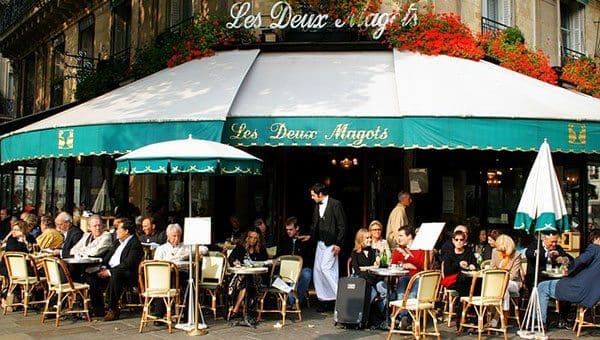
 PARIS – Gerard Hoffnung was a raconteur and wit on the BBC in the 1950’s. His speech to the Oxford Union, available on iTunes, is a classic piece of period of humour – a must listen to recording.
PARIS – Gerard Hoffnung was a raconteur and wit on the BBC in the 1950’s. His speech to the Oxford Union, available on iTunes, is a classic piece of period of humour – a must listen to recording.
Amongst the gems on that CD is a selection of letters received after inquiring about hotel accommodation in the Dolomites in Italy, contributed by readers to The Spectator.
Wonderful comic material – “we are poor in bath, but good in bed” or a brochure which said “Standing among savage scenery, the hotel offers stupendous revelations. There is a French widow in every bedroom, affording delightful prospects”. Another refers to the manager on the telephone saying “I can offer you a commodious chamber with a balcony imminent to the romantic gorge, and I hope you will want to drop in”.
But my own favourite from The Spectator collection, as recited by Hoffnung, is the motto posted at one hotel which simply said “Our motto is ‘Ever Serve You Right'”.
The good news is that the tradition of mangling English persists in restaurants, hotels and public places, as a recent tour of France confirms. A sign in a hotel in Nice made clear that “Being dressed well is compulsory in the dining room” – French fashion week is obviously a constant. Another hotel, this time in Monte-Carlo, offered different room rates for different times of the year, with extra charges for “manifestations”. I had two, one with tonic. It in fact refers to public holidays. Outside a small hotel in Menton was a clear and illuminated sign, “Parking in the Back Side”, which I am not sure was all that feasible, unless you were driving a small car.
In Paris, at the Hotel des Academies, there was a simple sign saying “please leave your values at the front desk”, suggesting that this was the place that many European politicians stayed at. A dress shop on the Montparnasse had a sign that enticed some, but not many, to enter: “dresses for street walking”. I am still trying to understand the sign in our rented apartment in the Luberon: “please avoid coca watering, cream cleaning, wet towels wrapping, and ironing drying” – but we complied to the best of our ability.
In the Super-U supermarket in a small French town where many English tourists spend time, we spotted a sign that said “For your convenience, we recommend courageous, efficient self-service” and they were not kidding. This supermarket has given rights to people with disabilities to go directly to the front of any line-up and all French people we met appeared to have one or more disability, or at least felt they had.
In a laundry in Gordes there is a sign that says (in French) “Ladies, leave your clothes here and spend the afternoon having a good time”. It’s nice to see that old French traditions die hard.
Menu translations are also a source of great entertainment. Once, the waiter explained that one dish was of pigeon, another of rabbit and a third of rat (meaning ratatouille). In a Chinese restaurant we saw the main items as “sheep leg, cowboy leg and local steaks” – the cowboy leg came with sides (also known as chaps). The same eatery had a menu item that simply said “juice of steams the fish mouth,” which we couldn’t be talked into.
In a street-side cafe the menu included a special cocktail for “Ladies with nuts,” which I feel sure was warranted. The same cafe also made clear that the water was safe to drink — “the manager has personally passed all the water here.”
A friend suggested to me that there should be an international centre for translation where any organization can send their menu, street sign or draft brochure and have it translated into a version of English that more of us could understand. I disagree. On a hot day, after a long walk and many museums, such translations lift the spirit and encourage recuperative laughter, and I am all for that.
That’s why I am still laughing at the sign in the taxi we took which said “We take your bags and send them in all directions” – a skill they probably learned in an Air Canada workshop.
The views, opinions and positions expressed by columnists and contributors are the author’s alone. They do not inherently or expressly reflect the views, opinions and/or positions of our publication.


